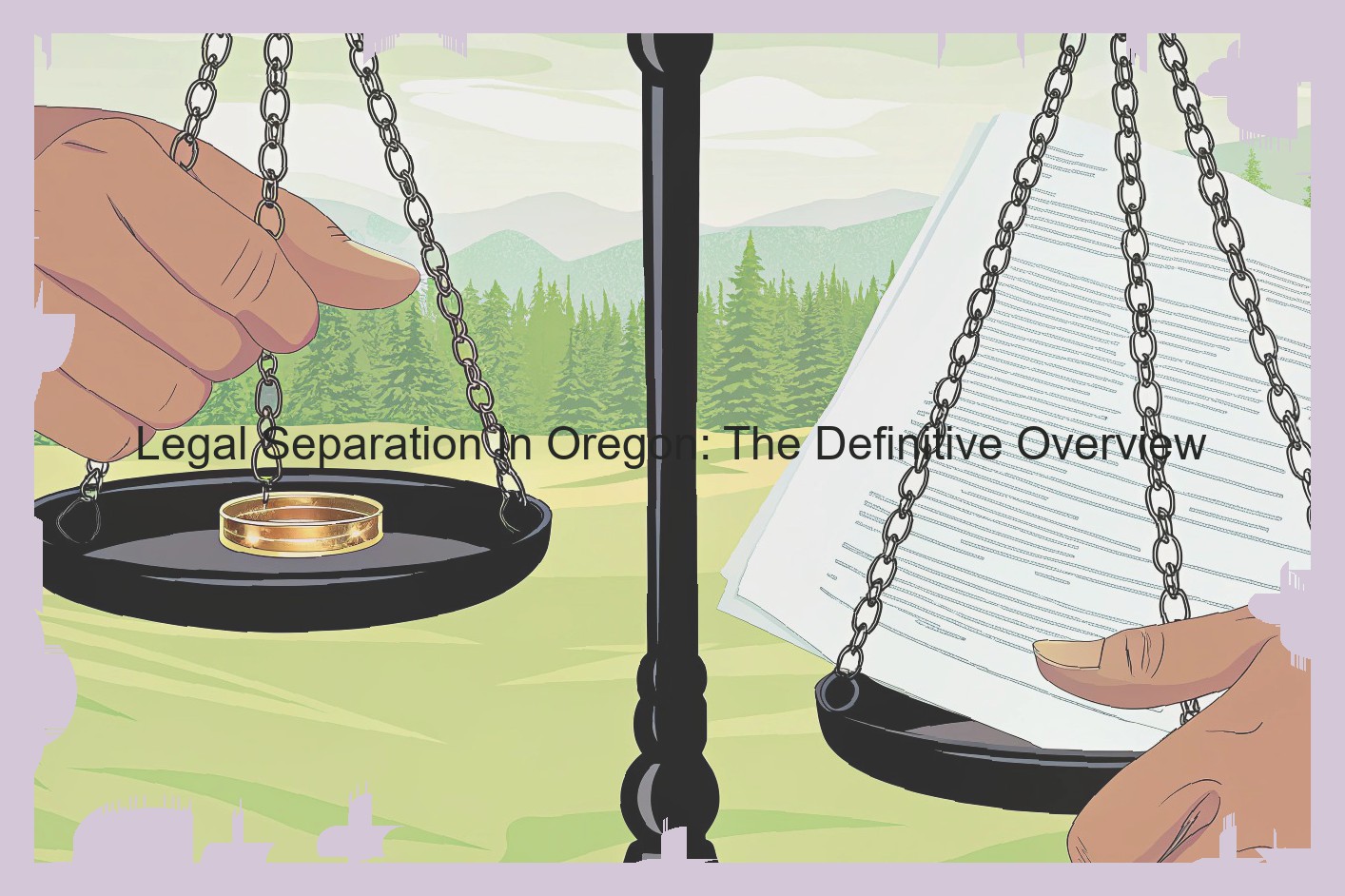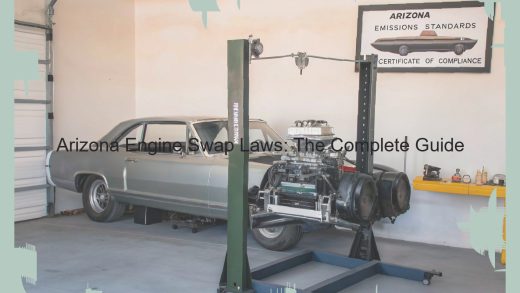What is a Legal Separation In Oregon?
Legal separation is a step within a marriage that is a legal and documented process. It establishes protocol for separated parties to resolve issues that can arise when a divorce is not desired. A legal separation occurs with court filings, similar to a divorce, however, the parties are not legally divorced. This works as an alternative to a legal annulment that makes a marriage invalid under the law but does not redo the separation that has already taken place. Legal separation in Oregon provides a way to separate assets , determine spousal support, and visitation or custody guidelines for children. If spouses are unable to file a divorce petition due to religious or other personal reasons, it can be a great option. Spousal support may be time-limited, making a legal separation preferable for some. Similar to living apart as an unmarried couple, legal separation allows the parties to divide assets or assets.

Oregon Legal Separation Reasons
People in Oregon may choose legal separation rather than get a divorce for several reasons. One of the most common reasons is based on religious views. Some people cannot consider divorce as an option because of their religious beliefs, and legal separation allows the couple to live apart while still retaining all of the benefits of the marriage. The law considers a legally married couple to be married even if they live apart, however, a legal separation enables the couple to be separated but not divorced. Filing for legal separation rather than a divorce is also beneficial if the couple lives in a state where the residence requirements for filing for divorce are different from those of Oregon. In this case, the couple can file for a legal separation in Oregon, meet the six-month residency requirement and later file for divorce. The couple may also seek legal separation rather than divorce for financial benefits. For example, legal separation can help people who are in their 50s secure the financial benefit of Medicare due to special rules that apply to legal separation. When the couple legally separates, they may keep their marital status for Medicare and avoid a delay in the benefit. Legal separation also avoids the high cost of divorce for couples who only need to be separated for a short period. The benefits of legal separation last until the couple legally gets divorced. Some people believe that legal separation may reduce feelings of guilt for abandoning a marriage while still allowing them to live separately and move on with their lives. Legal separation also allows partners to experience many of the same benefits of being single after they separate. If one partner has health insurance and the other partner does not, the partner with the health insurance may continue with health insurance after the separation by writing an agreement that allows the coverage to continue even though the couple is no longer living together. It is also worth noting that legal separation may save people money on taxes. There is no marital penalty and people can claim their personal deductions without incurring a tax penalty.
Legal Separation Process In Oregon
Unlike some states, Oregon does not have an actual "legal separation." The legal process for separation is actually a divorce. Many people obtain a divorce and live apart prior to the date of entry of the Judgment of Dissolution of Marriage. Some remain married, live apart, but do not obtain a Judgment of Dissolution of Marriage.
Under Oregon law, a person can either file as "plaintiff" or "respondent," but the marriage ends on the date the Judgment of Dissolution of Marriage is signed by the Judge. Then, and only then, does the marriage end.
So, an individual who wants to separate from their spouse goes through the same process as a divorce. They file a petition, pay a filing fee, serve their spouse, and then they may negotiate a settlement or have a trial.
Very early in the process, one party may request a Temporary Restraining Order (TRO) and file a motion requesting that their spouse pay child support, spousal support, assist with a mortgage payment, or any other relief that is necessary while the case is pending. Then, they may have a hearing before a Judge to resolve these issues.
Just like in a divorce, all of the issues of the case can be resolved by direct negotiation between the parties, or through mediation or a trial.
Legal Issues Regarding Legal Separation In Oregon
Once the parties have reached an agreement on the terms of a legal separation, they must sign and file a legal separation agreement with the court. This is a signed writing that memorializes the terms agreed to by the parties. It includes the basic terms of the separation, including child custody, division of assets and debts, spousal support and child support and costs and expenses associated with raising the children (health insurance costs, child care costs, etc.). An Oregon legal separation agreement may either be a simple agreement with all of the agreements outlined, or a more complex one, outlining the agreements in each area of family law.
As mentioned, unlike divorce, the parties remain married in a legal separation. Because of that, the exception of waiting one year after the date of separation is not a rule in Oregon legal separations . Any terms related to spousal support or child support are based on the date of filing, as opposed to the date of separation, and can change from court to court, or even judge to judge. Just as when a divorce action is filed, the parties will still need to attend mandatory mediation to resolve any issues regarding children. If they cannot agree, the court will set a trial date, where the parties will present their case to the court in front of a judge before a decision will be rendered.
Although a legal separation agreement is a legal, binding contract between the parties, it is still not a divorce. It essentially provides the same relief of a divorce, missing only the finality of a divorce decree. The practical advantages to a legal separation over a divorce include those who do not wish to become divorced for religious or personal reasons, do not want to deal with the many hurdles associated with a divorce, or cannot afford to move forward with a divorce yet.
Modifying or Terminating a Legal Separation
Modification or Termination of a Legal Separation in Oregon
Under Oregon law, a legal separation can be modified. If circumstances change in the future, such as one spouse becomes disabled or unemployed, an Oregon Court can adjust the child support obligation or award spousal support relief. In some instances, a spouse’s irresponsibility leads to a court also lifting a temporary alimony award to the disadvantaged spouse. One question that often arises is whether a couple who has legally separated can reconcile and resume their marriage. The answer in Oregon is a qualified "yes." The couple must legally reconcile the separation by seeking a dismissal from the court and filing a joint motion to do so. This reconciliatory process, called a "motion for dismissal," can save the couple money and time. If a couple ever separates, there comes a time when they wonder whether it would be best to just go ahead and get a divorce. A "motion for conversion" allows for this eventuality.
Oregon Family Lawyer Consultation
When considering a legal separation with a spouse, it is essential to obtain qualified legal advice from a family law attorney. A family law attorney with experience in Oregon legal separations will be able to provide advice and assistance in navigating the legal separation process and protecting the rights and interests of the client. An experienced family lawyer will be able to provide information about the legal separation process and how it differs from a divorce , advise on how custody, support, and property and debt division may be settled, assist with filing the court documents necessary to obtain a legal separation, and represent the best interests of the client throughout the case.



